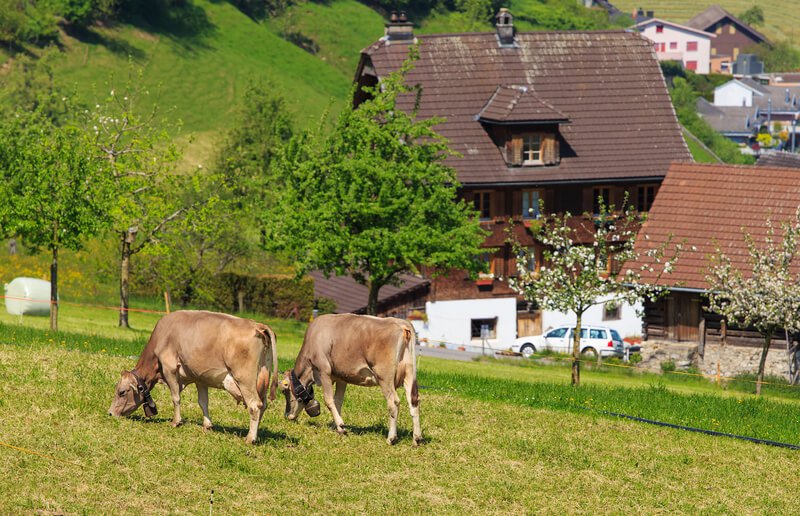© Denis Linine | Dreamstime.com Broadly, Switzerland’s agricultural sector costs the country CHF 19.9 billion while contributing only CHF 3.4 billion, concludes a study published by the think tank Avenir Suisse. The CHF 19.9 billion cost the report’s authors calculate is made up of tax breaks and direct federal and cantonal payments to the sector ...
Topics:
Investec considers the following as important: 3) Swiss Markets and News, Avenir Suisse, Featured, newsletter
This could be interesting, too:
RIA Team writes The Importance of Emergency Funds in Retirement Planning
Nachrichten Ticker - www.finanzen.ch writes Gesetzesvorschlag in Arizona: Wird Bitcoin bald zur Staatsreserve?
Nachrichten Ticker - www.finanzen.ch writes So bewegen sich Bitcoin & Co. heute
Nachrichten Ticker - www.finanzen.ch writes Aktueller Marktbericht zu Bitcoin & Co.
Broadly, Switzerland’s agricultural sector costs the country CHF 19.9 billion while contributing only CHF 3.4 billion, concludes a study published by the think tank Avenir Suisse.
The CHF 19.9 billion cost the report’s authors calculate is made up of tax breaks and direct federal and cantonal payments to the sector (4.9b), the cost of artificially inflated consumer prices due to import restrictions (4.6b), environmental damage (7.3b), and the indirect cost to export businesses (3.1b) from agricultural trade restrictions.
At 51% of farm receipts, Switzerland has the third highest level of farm subsidies in Europe after Norway and Iceland.
The cost of high consumer prices is based on international price comparisons, and the environmental cost brakes down into the cost of greenhouse gas emissions (0.4b), excess nitrogen damage (1.5b), pesticide and peat bog cleanup (0.2b) and lost biodiversity resulting from excess nitrogen and pesticide use (4.9b).
The 3.1b related to import restrictions, is based largely on a study which looks at the impact of reaching a full trade deal with the EFTA block.
84% of the total (16.7b) is borne by the public via taxes (4.9b), artificially high prices (4.6b) and environmental damage (7.3b). This works out at around CHF 4,700 p.a. per household1. A narrower measure, which excludes damage to the environment, puts the average monetary cost per household at around CHF 2,570 p.a.
The report then weighs this CHF 19.9 billion cost against the sector’s net economic output of 3.4 billion and the 0.6 billion of import duties collected, to arrive at a net economic burden of CHF 15.9 billion.
The authors of the study recommend reform, which would include reduced import protection, reformed subsidies, reduced legal complexity, updated taxes around the transfer of land ownership to open the sector to new comers, structural changes that favour the environment, and new rules that would limit the emergence of dominant mega farms.
Some have reacted strongly to the report. The Swiss People’s Party (UDC/SVP) has called it laughable, saying it makes little sense to look at consumer prices. The figure to look at is the comparatively small and declining share of income spent on food (5.7%) in Switzerland, they say.
In addition, their response quotes an agri-food industry GDP figure of 90.0b compared to the 10.3b agricultural output figure in the Avenir Suisse analysis. However, the 90.0b includes the economic output of both the agricultural and food sectors and is incomparable.
Meanwhile, Switzerland’s struggling farmers are caught between the hope of greater government support and the harsh economic reality of operating under the current system. According to the newspaper Le Nouvelliste, 12% of Swiss farmers are facing burnout.
Tags: Avenir Suisse,Featured,newsletter

